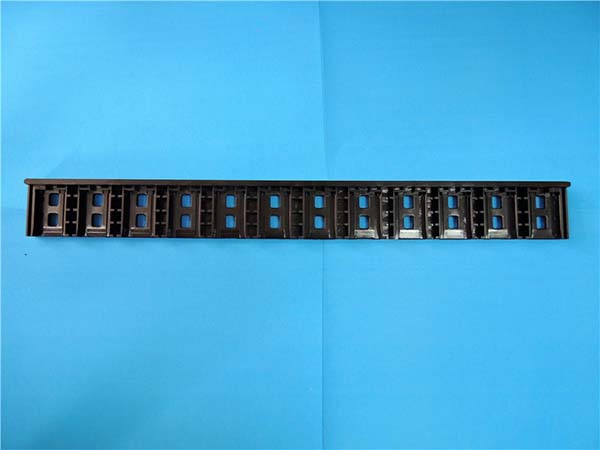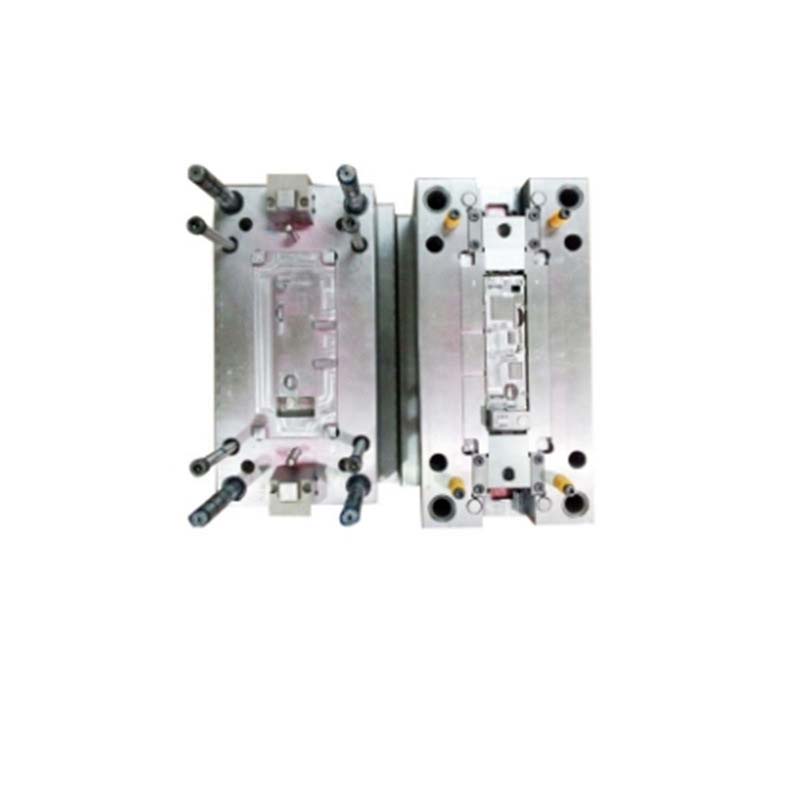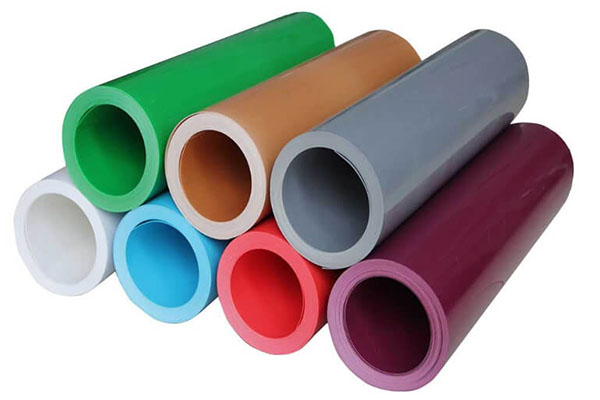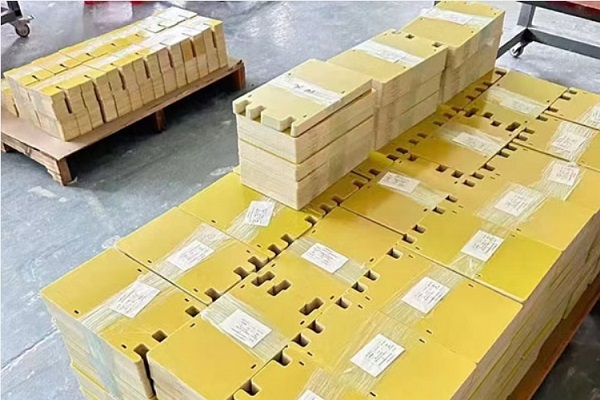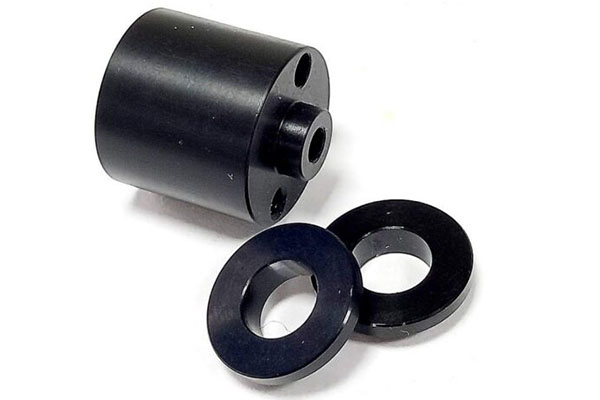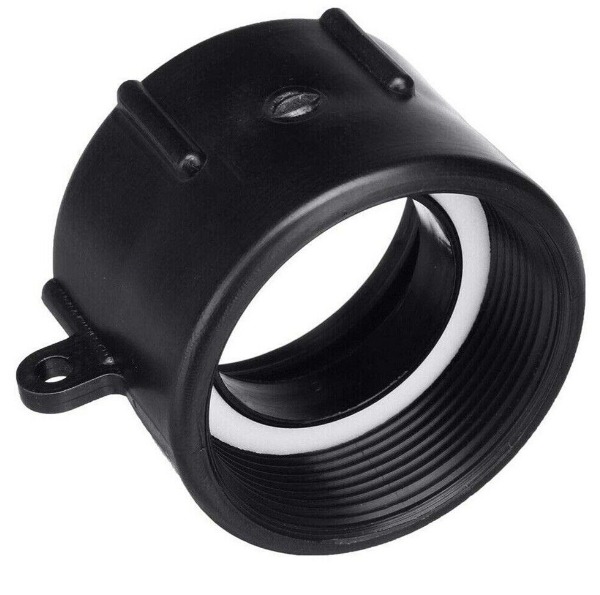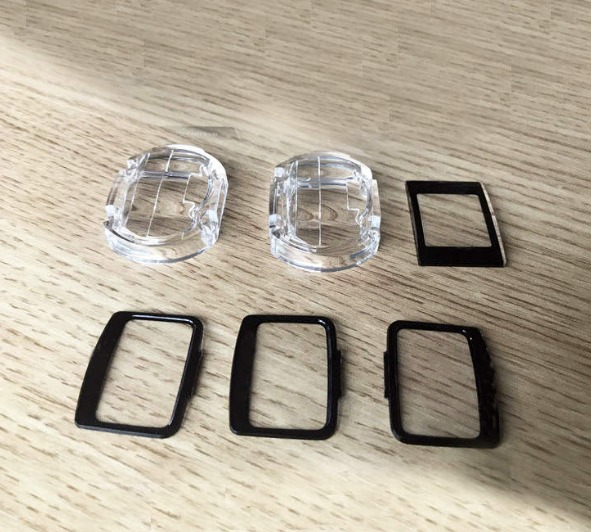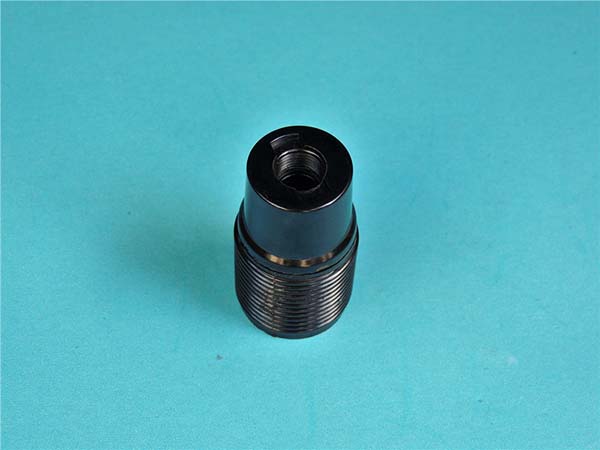Understanding Plastic Injection Molding
What is Plastic Injection Molding?
Plastic injection molding is a manufacturing process that has revolutionized the production of plastic parts across countless industries. It involves the creation of three - dimensional plastic objects by injecting molten plastic material into a mold cavity.
The basic principle is quite straightforward yet highly effective. First, plastic pellets, which are the raw material, are fed into a heated barrel of an injection molding machine. As the pellets move through the barrel, they are heated to a molten state. This melting process is carefully controlled to ensure the plastic reaches the optimal viscosity for injection.
Once melted, a screw - like mechanism, known as the injection screw, applies high pressure to force the molten plastic through a nozzle and into a closed mold cavity. The mold cavity is precisely designed to the shape of the final product, whether it's a small plastic toy part or a large automotive component.
After the mold is filled with the molten plastic, it is cooled rapidly. This cooling process causes the plastic to solidify and take on the exact shape of the mold cavity. Once fully cooled and solidified, the mold is opened, and the newly formed plastic part is ejected.
The entire process is highly automated and can be repeated quickly, making it an ideal method for high - volume production. For example, in the production of plastic bottle caps, a modern injection molding machine can produce thousands of caps per hour. This high - speed production, combined with the ability to create complex shapes with high precision, is what makes plastic injection molding so popular in industries such as automotive, electronics, medical, and consumer goods.
Key Factors for a Profitable Business
Market Research
Market research is the cornerstone of a successful plastic injection molding business. Without a deep understanding of the market, any business venture is like a ship sailing without a compass.
First and foremost, analyze the target market. Different industries have varying demands for plastic injection - molded products. For example, the automotive industry requires high - strength and heat - resistant plastic parts for engine components and interior trims. In 2022, the global automotive plastic market was valued at approximately $46.7 billion, and it is expected to grow at a CAGR of 5.4% from 2023 to 2030. On the other hand, the consumer goods industry focuses more on the aesthetics and functionality of plastic products, such as toys, household appliances, and packaging. By identifying the target market, you can tailor your production to meet the specific needs of that industry.
Understanding customer needs is equally crucial. Conduct surveys, interviews, and focus groups to gather insights. Customers may demand products with unique features, such as eco - friendly materials, improved durability, or cost - effectiveness. For instance, with the increasing awareness of environmental protection, many customers prefer plastic products made from recycled materials. According to a study, about 73% of consumers are willing to pay more for sustainable products.
Competitor analysis is another essential aspect of market research. Identify your direct and indirect competitors. Analyze their product offerings, pricing strategies, production capabilities, and customer service. If a competitor has a reputation for high - quality products but high prices, you may position your business to offer similar quality at a more competitive price. By doing so, you can carve out a niche in the market and attract customers.
Quality Equipment and Materials
The quality of your equipment and materials is directly related to the quality of your final products and, ultimately, your business's profitability.
High - quality injection molding machines are a must. There are various types of injection molding machines in the market, such as hydraulic, electric, and hybrid machines. Hydraulic machines are known for their high clamping force and are suitable for large - scale production of thick - walled products. Electric machines, on the other hand, are more energy - efficient and offer higher precision, making them ideal for producing small and intricate parts. For example, an electric injection molding machine can achieve a repeatability accuracy of ±0.01 mm, which is crucial for manufacturing electronic components.
In terms of materials, the choice of plastic resins is vast. Common materials include ABS (Acrylonitrile Butadiene Styrene), which is known for its strength, heat resistance, and good surface finish, making it suitable for products like computer housings and automotive dashboards. Polypropylene (PP) is another popular choice due to its low cost, chemical resistance, and high - temperature stability. It is widely used in packaging, medical devices, and consumer goods. Using high - quality materials ensures that your products meet or exceed industry standards, reducing the likelihood of defects and returns.
Moreover, quality equipment and materials can contribute to cost - control in the long run. High - quality machines are more reliable and require less frequent maintenance and repairs. They also have a longer lifespan, which means lower replacement costs. Similarly, using the right materials can prevent issues such as material waste due to improper flow or inconsistent quality, thereby reducing production costs.
Skilled Workforce
A skilled workforce is the lifeblood of any plastic injection molding business. These professionals are responsible for ensuring the smooth operation of the production process and solving complex technical problems.
Molding technicians play a crucial role. They are proficient in setting up and operating injection molding machines. They can adjust parameters such as temperature, pressure, and injection speed to optimize the production process. For example, if a product has a defect like short - shots (incomplete filling of the mold), a skilled technician can quickly identify whether it is due to low injection pressure, improper temperature, or a problem with the mold design and take corrective actions.
Tool and die makers are also essential. They are responsible for designing, manufacturing, and maintaining the molds. A well - designed mold is key to producing high - quality plastic parts. Tool and die makers need to have a deep understanding of materials, machining processes, and precision engineering. They can make modifications to the mold to improve product quality, such as reducing flash (excess material on the edges of the product) or improving the surface finish.
Quality control inspectors are the gatekeepers of product quality. They use various inspection methods, such as visual inspection, dimensional measurement, and material testing, to ensure that the products meet the required standards. They can detect defects early in the production process, preventing the production of a large number of defective products and saving costs.
In addition, a skilled workforce can contribute to innovation. They may come up with new ideas for process improvement, product design, or material usage, which can give your business a competitive edge in the market.
Efficient Production Process
An efficient production process is essential for maximizing profitability in the plastic injection molding business. It involves optimizing various aspects of the production line to reduce waste and increase productivity.
One way to achieve this is through lean manufacturing principles. Lean manufacturing focuses on eliminating waste, which can include overproduction, waiting time, excess inventory, unnecessary transportation, over - processing, defects, and unused talent. For example, implementing a just - in - time (JIT) inventory system can reduce inventory costs. Instead of keeping large stocks of raw materials and finished products, materials are ordered and products are produced only when they are needed. This minimizes the capital tied up in inventory and reduces the risk of obsolete inventory.
Automation can also significantly improve production efficiency. Automated systems can handle tasks such as material feeding, mold opening and closing, part ejection, and quality inspection. For instance, an automated material - feeding system can ensure a consistent supply of plastic pellets to the injection molding machine, reducing the risk of production interruptions due to material shortages. It can also improve the accuracy of material dosing, leading to better - quality products.
Process optimization is another key factor. This involves analyzing and fine - tuning the injection molding process. For example, optimizing the cooling time can reduce the cycle time of the production process. By using advanced cooling techniques, such as conformal cooling channels in the mold, the cooling time can be shortened, allowing for more products to be produced in a given time period.
Furthermore, continuous improvement is crucial. Encourage employees to suggest ideas for process improvement. Regularly review and analyze production data to identify areas for improvement. By constantly striving to improve the production process, your business can become more efficient, cost - effective, and competitive in the market.
Case Studies of Successful Plastic Injection Molding Businesses
Case Study 1: XYZ Plastics
XYZ Plastics is a well - established company in the plastic injection molding industry, with over 20 years of experience. It is based in the United States and serves a diverse range of clients across North America.
Business Scope
Their business scope is wide - ranging. They produce plastic components for the automotive, electronics, and consumer goods industries. In the automotive sector, they manufacture interior parts such as dashboards, door panels, and cup holders. For the electronics industry, they create housings for various devices like smartphones, tablets, and laptops. In the consumer goods area, they produce items like kitchen utensils, toys, and storage containers.
Profit Model
XYZ Plastics' profit model is centered around a combination of high - volume production and cost - effective operations. They have invested in state - of - the - art injection molding machines, which allows them to produce large quantities of parts efficiently. By negotiating long - term contracts with raw material suppliers, they secure favorable pricing for plastic resins. This, combined with their efficient production processes, helps them keep production costs low.
They also focus on providing high - quality products, which enables them to charge premium prices for their components. For example, their automotive parts are known for their durability and precise fit, meeting the strict quality standards of major car manufacturers. This reputation for quality has led to long - term partnerships with clients, ensuring a steady stream of business.
Success Experience
One of the key factors contributing to XYZ Plastics' success is their commitment to research and development. They constantly invest in new technologies and materials. For instance, they were one of the first in the industry to adopt biodegradable plastic materials for some of their consumer - goods products, in response to the growing demand for eco - friendly products. This not only gave them a competitive edge but also opened up new markets.
Another crucial aspect is their highly skilled workforce. They have a team of experienced molding technicians, tool and die makers, and quality control inspectors. The technicians are trained to optimize the performance of the injection molding machines, reducing production errors and waste. The tool and die makers are able to design and maintain molds with high precision, ensuring consistent product quality. And the quality control inspectors ensure that every product leaving the factory meets the highest standards.
Yigu Technology's Viewpoint
As a non - standard plastic metal products custom supplier, Yigu Technology believes that the plastic injection molding industry is on a promising trajectory. With the continuous development of technology and the increasing demand for customized products, the market for non - standard plastic injection molding is expanding.
Yigu Technology's strength lies in its ability to provide tailored solutions. We have a professional team that can understand clients' unique requirements precisely. Our advanced equipment and mature production processes ensure high - quality product output. For example, we use state - of - the - art mold - making technology to create molds that can meet the complex shape requirements of non - standard products.
Our service concept is centered around customer satisfaction. We offer one - stop services, from the initial product design consultation to after - sales service. We are committed to providing fast response times, ensuring that clients' orders are completed efficiently and on time. By constantly innovating and improving our services, we aim to be a reliable partner for businesses in the plastic injection molding field.
FAQ
What are the initial investments required to start a plastic injection molding business?
Starting a plastic injection molding business requires significant initial investments. Equipment is a major expense. A basic injection molding machine can cost anywhere from \(20,000 to over \)100,000, depending on its size, type (hydraulic, electric, or hybrid), and capabilities. For example, a small - to - medium - sized electric injection molding machine suitable for producing small parts may cost around \(30,000 - \)50,000. You'll also need to invest in molds, which can range from \(1,000 for simple molds to \)50,000 or more for complex, high - precision molds.
How can I ensure the quality of plastic injection molded products?
To ensure the quality of plastic injection molded products, several steps can be taken. First, choose high - quality plastic materials. Different materials have different properties, so select the one that best suits the product's requirements. For example, if the product needs to be heat - resistant, materials like PEEK (Polyether Ether Ketone) might be a good choice.
Second, establish a strict quality - inspection process. This includes inspecting raw materials before production, conducting in - process inspections during molding, and final inspections of the finished products. Use inspection tools such as calipers for dimensional measurements, and spectrometers for material composition analysis.
Another crucial aspect is to have a well - designed mold. A good mold design can prevent issues like flash, short - shots, and warping. Work with experienced tool and die makers who can optimize the mold design based on the product's shape, size, and material properties.
